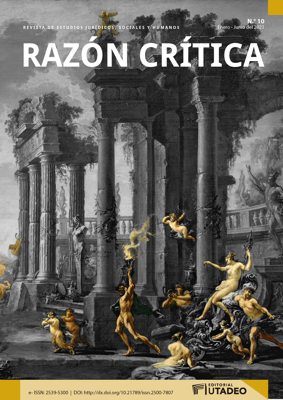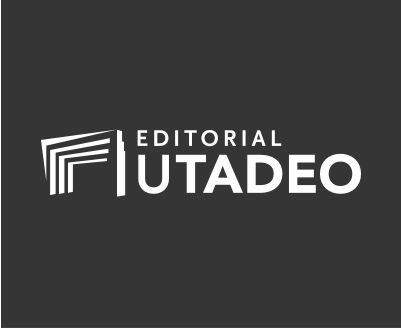
Esta obra está bajo una licencia internacional Creative Commons Atribución-NoComercial-CompartirIgual 4.0.
Esta obra está bajo una licencia internacional Creative Commons Atribución-NoComercial-CompartirIgual 4.0.
Resumen
En este artículo se propone realizar una caracterización crítica de la Organización para la Cooperación y el Desarrollo Económicos (ocde) a partir de su orientación general, tareas y medios empleados en el cumplimiento de sus funciones. Del mismo modo, se presenta una aproximación a la labor de esa Organización a partir de la utilización que hace de evidencia empírica y conocimiento experto en la identificación de las mejores prácticas de gobierno, en la precisión de estándares con vocación normativa, en la promoción de marcos regulatorios y en el impulso que ofrece a la formación de convergencias en políticas públicas. Esta contribución concluye con un análisis del compromiso de la ocde con una determinada racionalidad rectora de política económica, así como con la promoción de un ideal de Estado y de sujeto.
Citas
Arthur, C. (2012). Financial Literacy Education: Neoliberalism, the Consumer and the Citizen. Sense Publishers.
Asobancaria. (2014a). Semana económica. Asobancaria.
Asobancaria. (2014b). Programas de educación financiera de los bancos de Colombia. https://www.sabermassermas.com/programas-de-educacion-financiera-de-los-bancos-en-colombia/
Chinkin, C. (1989). The Challenge of Soft Law: Development and Change in International Law. The International and Comparative Law Quarterly, 38(4), 850-866. https://doi.org/10.1093/iclqaj/38.4.850
Dunoff, J., Ratner, S., & Wippman, D. (2010). International Law: Norms, Actors, Process. Wolters Kluwer.
G20-OECD. (2013). Advancing National Strategies for Financial Education. https://www.oecd.org/finance/financial-education/advancing-national-strategies-for-financial-education.htm
G20. (2011). G20 High Level Principles on Financial Consumer Protection. https://www.oecd.org/daf/fin/financial-markets/48892010.pdf
G20. (2012). Principios de Alto Nivel de la OCDE/INFE sobre estrategias nacionales de educación financiera. http://finanzasparatodos.es/comun/pdf_varios/5_PEF_-_Principios_de_Alto_Nivel_sobre_Estrategias_Nacionales_de_Educacixn_Financiera.pdf
G20-OECD. (2017). G20/OECD INFE Report on Adult Financial Literacy in 20 Countries. https://www.oecd.org/finance/g20-oecd-infe-report-adult-financial-literacy-in-g20-countries.htm
Gayon, V. (2012). The OECD and the "Crisis" of Keynesianism : the McCracken Report, 1975-1980. Paris Dauphine University. https://basepub.dauphine.fr/handle/123456789/10894
Goodman, R., & Jinks, D. (2013). Socializing States: Promoting Human Rights Through International Law. Oxford University Press. https://doi.org/10.1093/acprof:oso/9780199300990.001.0001
Jackson, A. (2008). "Crafting the Conventional Wisdom": The OECD and the Canadian Policy Process. En R.
Mahon & S. McBride, The OECD and Transnational Govervance (pp. 170-187). University of British Columbia.
Keohane. R (1978) Economics, Inflation, and the Role of the State: Political Implications of the McCracken Report, World Politics, Vol. 31, No. 1 (Oct., 1978), pp. 108-128. https://doi.org/10.2307/2009969
Leimgruber, M., & Schmelzer, M. (2017). From the Marshall Plan to Global Governance: Historical Transformations of the OEEC/OECD, 1948 to Present. En M. Leimgruber & M. Schmelzer, The OECD and the International Political Economy Since 1948 (pp. 23-61). Palgrave. https://doi.org/10.1007/978-3-319-60243-1_2
Mahon, R., & McBride, S. (2008). The OECD and Transnational Governance. The University of British Columbia.
Mahon, R., & McBride, S. (2009). Standardizing and disseminating knowledge: the role of the OECD in global governance. European Political Science Review, 1(1), 83–101. https://doi.org/10.1017/S1755773909000058
McBride, S., McNutt, K., & Williams, R. (2008). Policy Learning? The OECD and its Jobs Strategy. En R. Mahon & S. McBride, The OECD and Transnational Governance (pp. 152-169). University of British Columbia.
OCDE. (1960). Convención de la Organización de Cooperación y Desarrollo Económicos. http://www.oecd.org/acerca/documentos/convenciondelaocde.htm
OECD. (2007). OECD Council Resolution on Enlargement and Enhanced Engagement. https://www.oecd.org/brazil/oecdcouncilresolutiononenlargementandenhancedengagement.htm
OECD. (2013). Roadmap for the Accession of Colombia to the OECD Convention. https://one.oecd.org/document/C(2013)110/FINAL/en/pdf
OCDE-INFE. (2015). National Strategies for Financial Education: OECD/INFE Policy Handbook. https://www.oecd.org/daf/fin/financial-education/national-strategies-for-financial-education-policy-handbook.htm
OCDE. (2017). Activos con América Latina y El Caribe. https://issuu.com/oecd.publishing/docs/activos-con-america-latina-y-el-caribe
Pal, L. (2008). Inversions Without End: the OECD and Global Public Management Reform. En R. Mahon y S. McBride, The OECD and Transnational Governance (pp. 60-76). University of British Columbia.
Picciotto, S. (2006). Regulatory Networks and Global Governance. En WG Hart Legal Workshop 2006: The Retreat of the State: Challenges to Law and Lawyers, 2006-06-272006-06-29. [Unpublished]. University of London.
Porter, T., & Webb, M. (2008). Role of the OECD in the Orquestation of Global Knowledge Networks. En R. Mahon y S. McBride, The OECD and Transnational Governance (pp. 43-59). University of British Columbia.
Rubenson, K. (2008). OECD Education Policies and World Hegemony. En R. Mahon, & S. McBride, The OECD and transnational governance (pp. 242-259). Vancouver: University of British Columbia.
Ruckert, A. (2008). Making Neo-Gramscian Sense of the Development Assistance Committee: Towards an Inclusive Neoliberal World Development Order. En R. Mahon y S. McBride, The OECD and Transnational Governance (pp. 96-113). University of British Columbia.
Salzman, J. (2005). Decentralized Administrative Law in the Organization for Economic Cooperation and Development. Law and Contemporary Problems, 68(3/4), 189-224. https://doi.org/10.2139/ssrn.871757
Siems, M. & Alvarez-Macotela, O. (2017). The G20/OECD Principles of Corporate Governance 2015: A Critical Assessment of Their Operation and Impact. Journal of Business Law, (4), 310-328.
Slaughter, A. M. (2004). A New World Order. Princeton University Press. https://doi.org/10.1515/9781400825998
Stone, D. (2001). Learning Lessons, Policy Transfer and the International Diffusion of Policy Ideas. Centre for the Study of Globalisation and Regionalisation, Working Paper (69/01).
Stone, D. (2004). Transfer Agents and Global Networks in the 'Transnationalisation' of Policy. Journal of European Public Policy, 11(3), 545-566. https://doi.org/10.1080/13501760410001694291
Walker, J. (2008). The Inclusion and Construction of the Worthy Citizen Through Lifelong Learning: A Focus on the OECD. Journal of Education Policy, 24(3), 335-351. https://doi.org/10.1080/02680930802669276
Weiss, F. (2015). The Device of Soft Law: Some Theoretical Underpinnings. En F. Weiss & A. Kammel, The Changing Landscape of Global Financial Governance and the Role of Soft Law (pp. 47-58). Brill Nijhoff. https://doi.org/10.1163/9789004280328_005
Wolfe, R. (2008). From Reconstructing Europe to Constructing Globalization: the OECD in Historical Perspective. En R. Mahon & S. McBride, The OECD and Transnational Governance (pp. 25-42). University of British Columbia.
Woodward, R. (2008). Towards Complex Multilateralism? Civil Society and the OECD. En R. Mahon & S. McBride, The OECD and Transnational Governance (pp. 77-95). University of British Columbia.

 PDF
PDF
 FLIP
FLIP
 XML
XML












